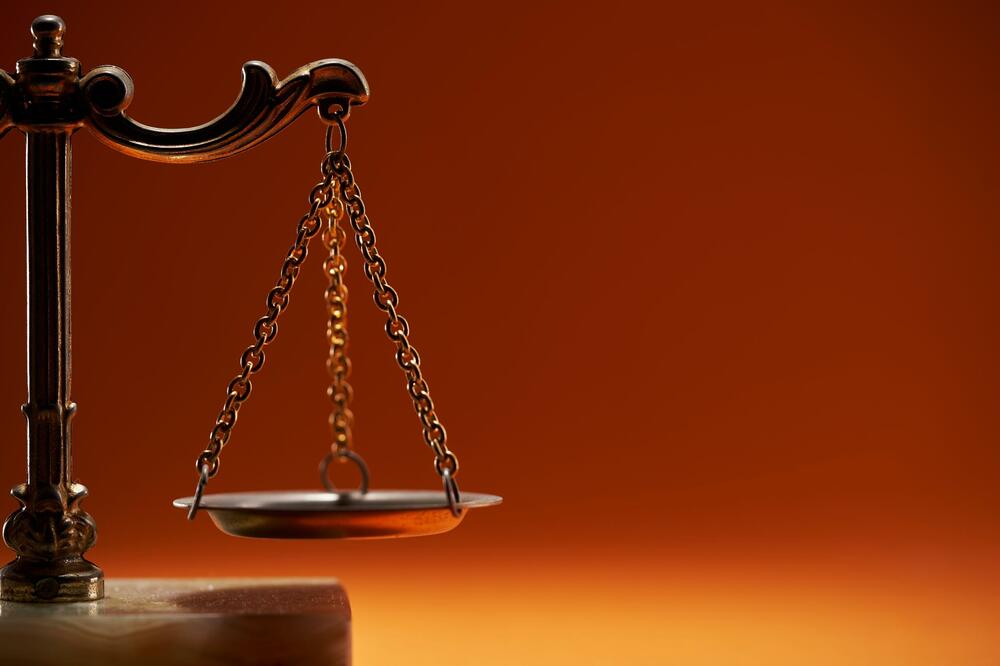The Judicial Council (JSC) dismissed two judges for committing criminal offenses more than 10 years ago. In 2017, the SS dismissed another judge, but that decision was overturned and he was reinstated. Due to negligent and unprofessional work, five of them were dismissed, but even those dismissals were a long time ago, the last one was 12 years ago.
According to the data he obtained Center for Investigative Journalism of Montenegro (CIN-CG), it very often happened that judges, by submitting their resignations, made it impossible to conduct disciplinary proceedings. As CIN-CG wrote earlier, the same practice was in the prosecutor's office.
A number of dismissed judges continued to work in the judicial system, mostly as lawyers.
By reviewing the disciplinary procedures published on the website, the Council had a practice of punishing judges with a symbolic reduction in salary for a few months for constantly exceeding the deadlines for drafting judgments; unjustified absence from trial for one month; failure to act within the legal deadlines in several cases. It often happened that judges were only warned for violations of duty.
Unfortunately, the system for determining the responsibility of judges and state prosecutors is still not effective, the legal adviser of the Action for Human Rights (HRA) points out for CIN-CG Marija Vesković.
"Numerous criminal proceedings initiated in the previous 15 months indicate that there was illegal influence in the judiciary and prosecutor's office, while on the other hand, the practice of establishing disciplinary and ethical responsibility is at a minimal level," emphasizes Vesković.
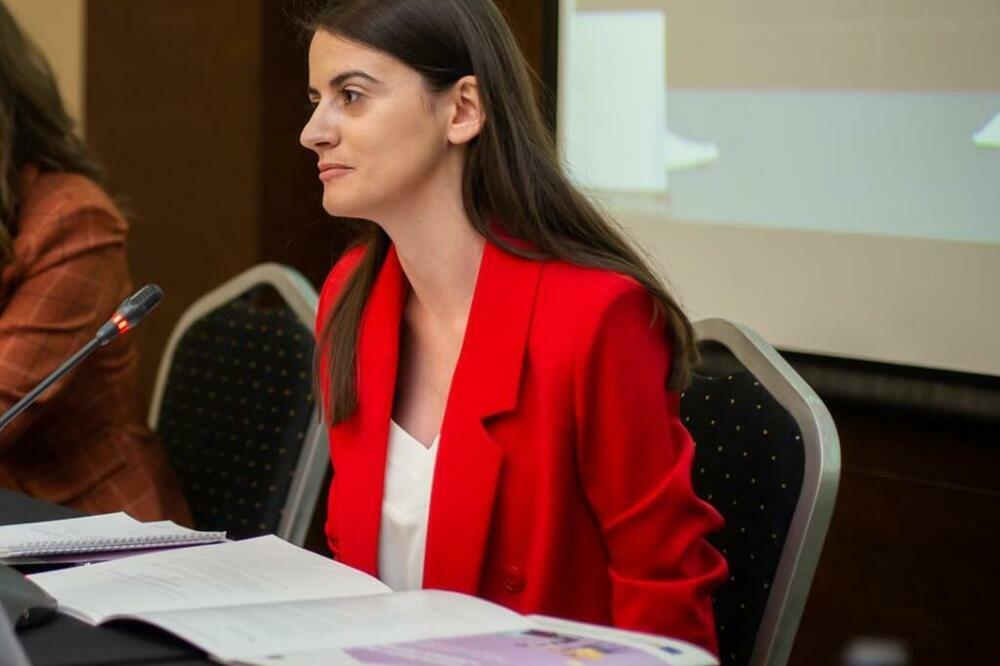
Former judge of the Basic Court in Kolašin Branislav Grujić He was dismissed by the SS in 2009 because he was legally sentenced to a year in prison for abuse of official position and negligent work in the service.
He was convicted because in several cases he allowed the criminal prosecution to expire, and in one case he allowed the convicted person to avoid the execution of the sentence.
He was accused of abuse of official position, which carries a sentence of one to eight years in prison, and two criminal offenses - negligent work in the service. A fine or imprisonment of up to three years is provided for this criminal act.
The basic court in Bijelo Polje, however, sentenced him to ten months in prison for the lesser offense of abuse and three months for the single offense of negligent work in the service and sentenced him to a single sentence of one year.
In the same case, the registrar of criminal cases in the court received twice the prison sentence of two years than the judge Grujić.
The most serious consequences for violating the ethics and principles of the profession were borne by the former judge of the High Court in Bijelo Polje Arif Spahic. In 2010, he was sentenced to seven years in prison for two criminal offenses of accepting bribes. The Judicial Council dismissed him in 2011. The criminal offense for which he was convicted carries a sentence of three to 15 years.
He was convicted after it was proven that he received a bribe of around 20.500 euros in order to impose a lighter sentence in the case of a serious criminal offense in the field of public transport with fatal consequences. In addition, the judge allowed the defendant to release his detention and escape.
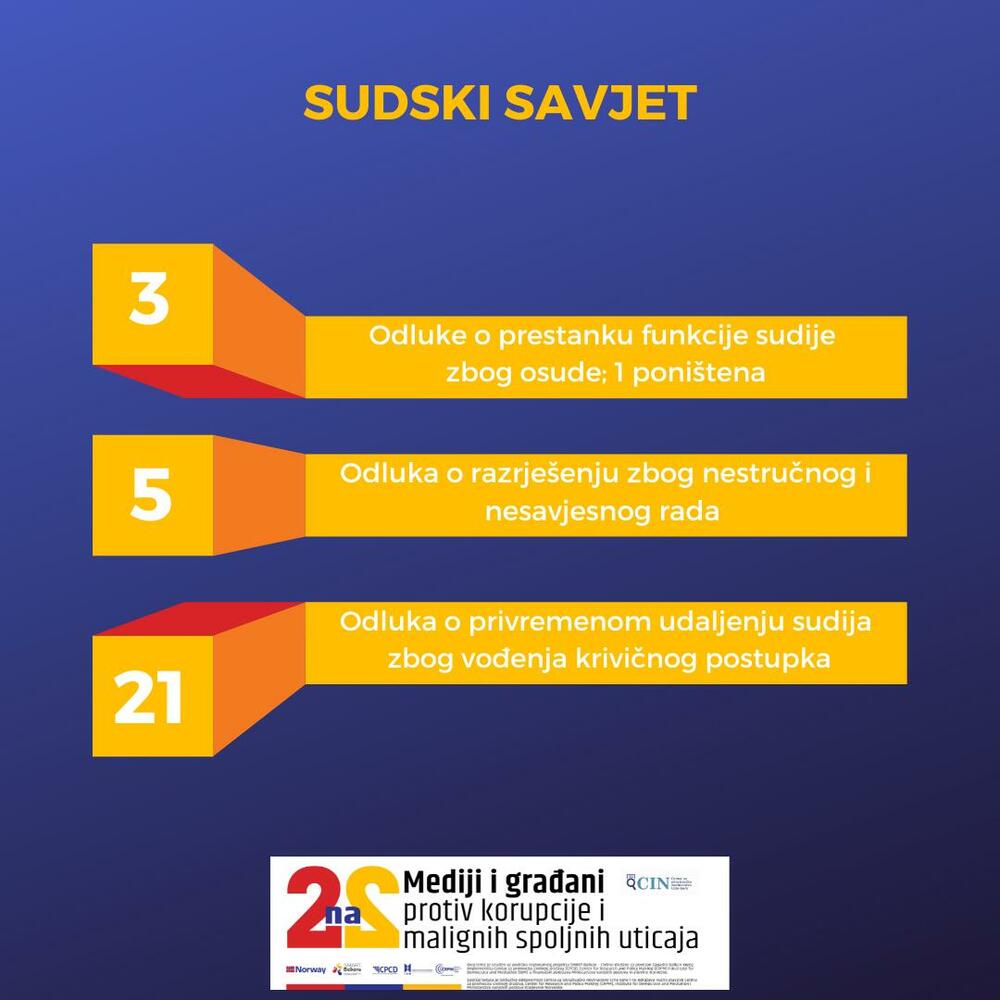
In the second case, Spahić also received a bribe of 18.500 euros in order to sentence the defendant to a lighter prison sentence and terminate custody due to the unauthorized production, possession and distribution of narcotic drugs.
In 2017, the SS dismissed the then president of the Basic Court in Cetinje Goran Vrbica, but in 2021 he put him back to work. Vrbica accused himself of being a judge Nebojsi Marković gave instructions on what decision to make and thereby damages one company at the expense of another for 800.000 euros.
The sentence by which he was sentenced to one year was annulled by the Constitutional Court. In the retrial, the judge was acquitted on the grounds that there was no evidence that he abused his position. After being reinstated, Vrbica continued to work as a judge in the Basic Court in Kotor, but soon resigned.
Judge Nebojša Marković, who was also tried in the same procedure, was acquitted of the charges, but the SS did not deal with his case, because he resigned and switched to lawyers.
The judge buried the defendant
Due to unprofessional and unscrupulous work, the SS dismissed five judges, the last one 12 years ago.
Former judge of the Basic Court in Pljevlja Zorica Novaković, former judge of the Basic Court in Podgorica Žarko Savković, former judge of the Basic Court in Kolašin Ljiljana Simonović, former judge of the Basic Court in Cetinje Dusko Jovovic and a former judge of the High Court in Bijelo Polje Atif Adrović were dismissed due to unprofessional and negligent performance of the judicial function, in proceedings from 2008 to 2011.
Simonović was dismissed because in 2008 and 2009, she had over 50 percent of decisions annulled, but also because she did not act in dozens of enforcement cases for years, even though she was obliged to do it urgently. In one case, the judge even stopped the proceedings due to the death of the defendant, who was alive.
Savković was dismissed because he did not act in many cases for several years, which is why criminal prosecutions were statute-barred in some cases.

Novaković also did not act in enforcement cases for years or acted incorrectly. After that, she continued to work as a lawyer. However, she was recently sentenced to three years in prison for aggravated fraud and aggravated forgery. She is accused of charging false expenses of 160.000 euros in more than 20 cases. That judgment is not yet final.
Former judge Jovović was fired because, during 2009, he was late in drafting more than 150 verdicts. According to the CPC, the judgment that has been published must be written and sent within one month, and in complex proceedings within two months. Former judge Jovović, now a lawyer, took up to eight months for some verdicts.
There are no people responsible for crimes, but there are people for stealing electricity
The case of Judge Adrović vividly shows that a judge can be dismissed for much milder offenses than those that many representatives of the judiciary have been committing for years.
Adrović was dismissed because he gave a conditional sentence to a man who stole electricity, and later paid EPCG more money than he spent. This accused, however, was previously sentenced to 45 days in prison for endangering traffic, so in the decision to dismiss Adrović, the SS referred to the provision of the CC that a suspended sentence cannot be imposed if someone commits a new criminal offense within five years.
In all these proceedings, the SS president was Vesna Medenica, who is now on trial for abuse of office. SDT accuses Medenica of being a member of a criminal organization formed by her son Milos Medenica encouraged the judges of various courts to make decisions in favor of the parties, who in turn gave bribes or were in godfather relations with her.

Criminal proceedings against the judges are also ongoing Danil Jegdić i Blaž Jovanić and a judge Maria Bilafer i Milice Vlahovic-Milosavljevic.
The judge of the Basic Court of Kotor, Bilafer, is suspected of abuse of her official position, i.e. of making illegal court decisions on registration in the marine property zone. The SDT did not answer CIN-CG's questions about what stage this procedure is in and whether an indictment has been filed against the judge.
The judge of the Commercial Court Vlahović-Milosavljević was accused of abuse of office, i.e. under the pressure of the former President of the Supreme Court, Vesna Medenica, contrary to the Law on Enforcement and Security, she passed a temporary measure in favor of Medenica's godfather. By Rada Arsić and his company, which seriously violated the rights of the other party.
Its suspended boss in the Commercial Court, Jovanić, was accused of being the organizer of a criminal organization that perpetrated fraud in bankruptcy proceedings in that court, made fictitious expenses and false estimates, which damaged eight companies for hundreds of thousands of euros.
Since the beginning of the work of the SS, 21 decisions have been made on the suspension of judges - Branislav Grujić, Snežane Dragojević, Željko Šupljeglava, Žarko Savković, Zorica Novaković, Zoran Lekić, Zoran Ašanin, Milorad Marotić, Ilijaz Krom, Isad Jašarović, Arif Spahić, Ljiljana Simonović, Nikola Tomić, Vidomir Bošković, Nedeljko Mrdak, Atif Adrović, Lazar Aković , Danil Jegdića, Marije Bilafer, Milice Vlahović-Milosavljevic i Blaž Jovanić.
The decision on suspension, that is, temporary removal, is made if criminal proceedings have been initiated against a judge or prosecutor for an act that makes him unfit to perform his duties, detention has been ordered, or if disciplinary proceedings on dismissal are ongoing.
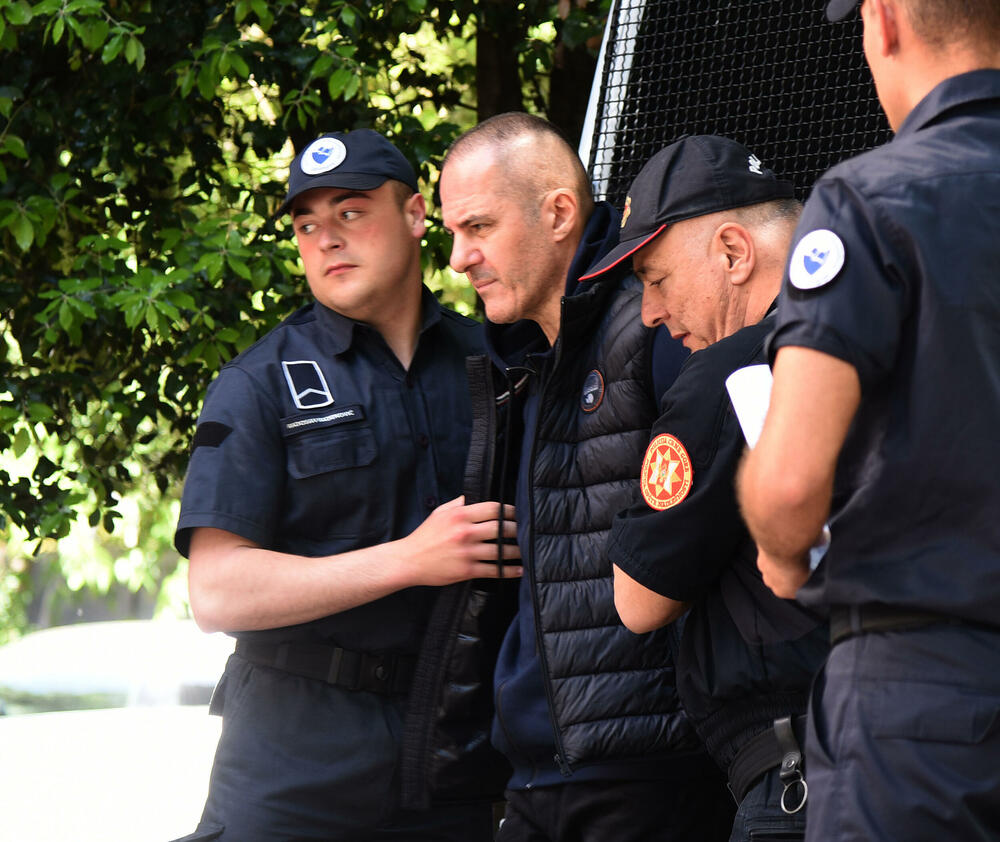
Except for the judges who have already been dismissed and the four against whom the proceedings are still ongoing, almost all the other suspended ones have resigned, thus making it impossible to conduct disciplinary proceedings.
And Vesna Medenica, who held top positions in the judiciary for almost three decades, complained that the SS was considering her case, because she resigned before criminal proceedings were initiated against her.
The long duration of the procedure casts a shadow over the truth
A longtime judge and former member of the SS Ana Perovic-Vojinovic for CIN-CG, she says that she is sure that the criminal proceedings against the heads of judicial institutions and judges will not end in disgrace:
"However, the fear regarding the duration of the procedure is justified, because the long duration of the procedure always casts a shadow on the truth that is established in the procedure, dilutes it and loses its validity."
According to Perović-Vojinović, there should be a consensus to give priority and absolute commitment to these procedures, in order to arrive at a quality verdict that is expertly grounded and well-argued.
"That means shorter deadlines for scheduling hearings, thorough and quick processing of the results of the evidentiary proceedings, and a good command of complete case files," says this judge of the Administrative Court.
She believes that the disciplinary responsibility of judges is indisputably one of the most important issues on which an effective judiciary depends.
"We have witnessed many negative events in the judiciary in the last few years, and especially the inability to adequately and quickly resolve situations in which there is a suspicion that major mistakes are being made due to inexperience or suspicion of corruption."
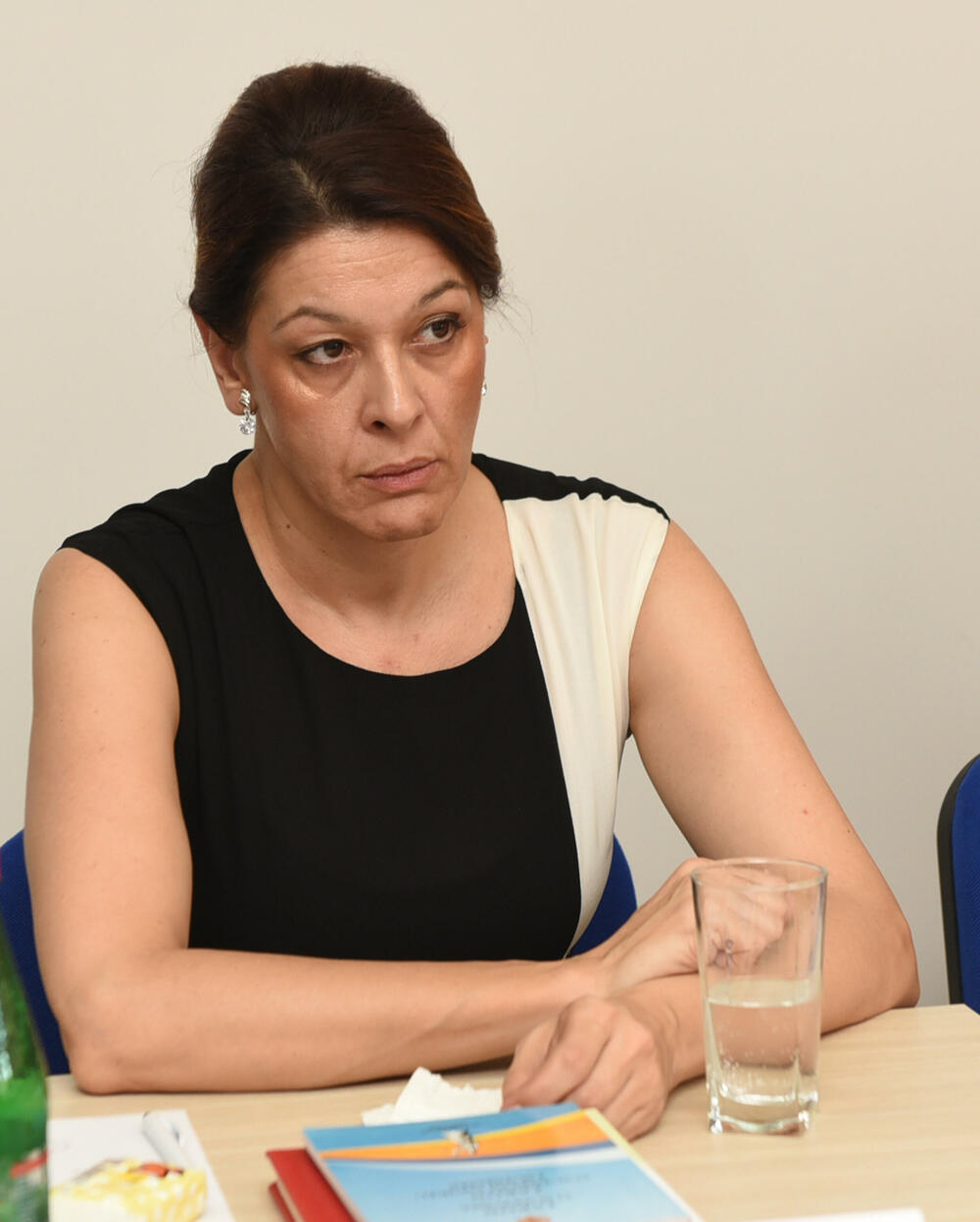
Perović-Vojinović was a member of the SS from July 2018 to July 2022. She points out that during that period the SS was particularly "tormented" by the disciplinary responsibility of judges, as well as by the ineffective, outdated and unenforceable Law on the Judicial Council and Judges.
He explains that the Law defines disciplinary offenses in general, which in practice has the consequence that the report is often rejected.
The representative of HRA Vesković also explains that the legal descriptions of some disciplinary offenses of office bearers, not only in the judiciary, but also in the prosecutor's office, are too vague, they are interpreted arbitrarily, which leads to avoiding the determination of responsibility, so it happens that judges and prosecutors are treated unequally.
It is necessary, adds HRA's legal advisor, to improve the legislative framework, especially when it comes to violations of the Code of Ethics and disciplinary violations:
"The difference is not insignificant, because disciplinary violations attract serious sanctions, unlike ethical violations, which are practically unpunished."
Do not allow resignation while disciplinary proceedings are being conducted
Perović-Vojinović also points out that the issue of the possibility of a judge resigning is a problematic one in cases where there is a suspicion that he has committed a serious disciplinary offense by his behavior.
"I believe that judges, as public officials, have a special responsibility before citizens, and that the law should resolve the 'legal power' of resignation, in such a way that disciplinary offenses must have priority."
And Vesković points out that this practice is problematic, and that the HRA also proposed that, through amendments to the Law, it should be prescribed that resignations are not considered during the duration of the disciplinary procedure.
However, the Ministry of Justice refused this with the explanation that the Constitution stipulates that, among other things, the judge's function ends when he requests it himself.
Vesković explains that in Serbia there is a legal possibility not to accept the resignation until the end of the disciplinary procedure, and that in their Constitution it is written that the judge's office ends even when he requests it, so this was not a reason not to adopt this provision.
HRA's legal adviser assesses that the problem is also in initiating the procedure for determining responsibility because the members of the SS and TS, as well as the disciplinary prosecutor, do not have the authority to initiate the procedure for determining the responsibility of a judge or prosecutor. That should change. Every member of the SS and TS should have the authority to initiate disciplinary proceedings, she points out.
The fact that certain cases were never prosecuted, and the legal conditions made it possible, shows that the problem is not only in the legislative framework, but also in the lack of proactivity or the will of the holders of judicial functions to initiate proceedings against their colleagues, says HRA's legal adviser.
Vesković cites the case of the judge Milosav Zekić, who served as a judge almost a year after he was finally convicted of a criminal offense, although he had to be dismissed immediately.
"The President of the Supreme Court at that time was Vesna Medenica, she knew that criminal proceedings were being conducted against Zekić, but she did not initiate disciplinary proceedings against him even when he was convicted."
This behavior of the president of the court is grounds for dismissal from the presidential office, concludes Vesković.
"We are not even aware that the question of the legality of decisions made by Judge Zekić at the time when he could no longer be a judge was raised." Only a year after the conviction, he resigned.
The current Acting President of the Supreme Court, Vesna Vučković, who is also a member of the SS, told CIN-CG that it is not within her competence to speak about the responsibility of judges and referred us to the Disciplinary Council of the SS.
However, even the disciplinary council of the SS remained silent to our questions and pleas to answer, which speaks volumes about how ready they are to change the system.
Judge of the Basic Court in Podgorica to Danilo Jegdić it has been on trial for six years, and not even a first-instance decision has been made yet. He was accused of prolonged falsification of an official document, which is punishable by a prison sentence of three months to five years, with the fact that in the case of prolonged criminal offenses the court may impose a harsher sentence than prescribed.
In the reply of the Nikšić Basic Court, where this case is being heard, CIN-CG was told only that the proceedings are still ongoing before Judge Sava Mušikić.
How long will the trials of the former president of the Supreme Court and the suspended president of the Commercial Court last? From the way the trials started, from the frequent postponements of the trials, one could conclude that justice will be slow. If she even wakes up.
Investigate the reasons for obsolescence
The previous practice of acting by both councils, based on complaints about the work of judges and prosecutors, as well as the annual work reports, showed that there are numerous cases of statute of limitations for criminal prosecution, reminds Vesković.
"However, in practice, checks and initiation of procedures for eventual determination of their responsibility were missing."
That is why it would be particularly important, Vesković points out, to ensure that the reasons for the limitation of criminal prosecution are examined, and in the event that the responsibility of the judge or prosecutor is determined, that this has an impact on evaluation, promotion and dismissal.

Bonus video:



